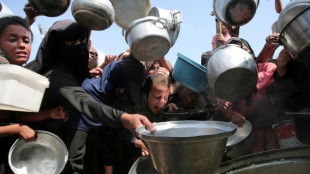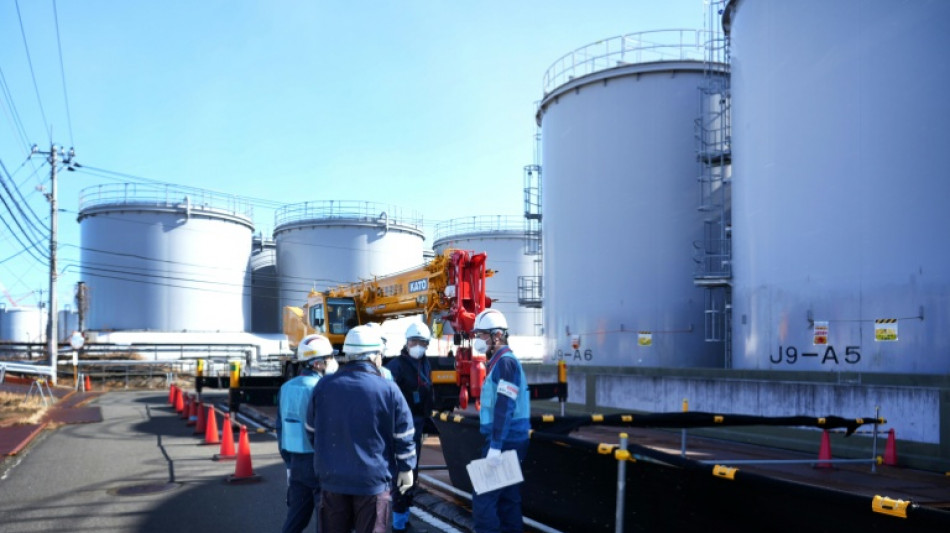
-
 Trump names close political aide as ambassador to India
Trump names close political aide as ambassador to India
-
Fraser-Pryce aiming to end career in 'magnificent way' at Tokyo worlds

-
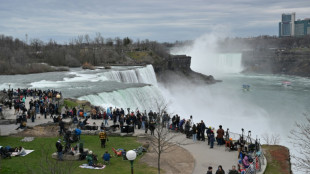 Multiple tourists killed in New York state bus crash
Multiple tourists killed in New York state bus crash
-
Gauff looks to future with bold coaching change before US Open

-
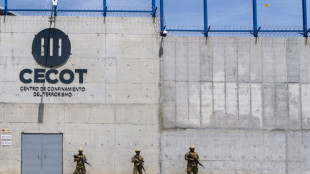 Salvadoran man at center of Trump deportations row freed
Salvadoran man at center of Trump deportations row freed
-
Top-ranked Sabalenka seeks rare US Open repeat

-
 Chelsea thrash West Ham to pile pressure on former boss Potter
Chelsea thrash West Ham to pile pressure on former boss Potter
-
Kane toasts 'instant connection' with Diaz after Bayern romp

-
 Ruiz goal gives rusty PSG narrow win over Angers in Ligue 1
Ruiz goal gives rusty PSG narrow win over Angers in Ligue 1
-
Salvador man at center of Trump deportations row freed
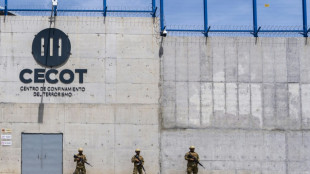
-
 Kane hits hat trick as Bayern thump Leipzig in Bundesliga opener
Kane hits hat trick as Bayern thump Leipzig in Bundesliga opener
-
England begin bid for Women's Rugby World Cup by thrashing United States

-
 Hopes dim for Putin-Zelensky peace summit
Hopes dim for Putin-Zelensky peace summit
-
Sinner in race for fitness with US Open title defense looms

-
 Jefferson-Wooden cements Tokyo sprint favourite status with Brussels win
Jefferson-Wooden cements Tokyo sprint favourite status with Brussels win
-
Dutch foreign minister resigns over Israel sanctions

-
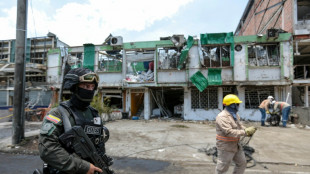 Colombia reels after twin guerrilla attacks kill 19
Colombia reels after twin guerrilla attacks kill 19
-
'Zero doubts' as Jefferson-Wooden scorches to Brussels 100m win

-
 Fleetwood ties Henley for PGA Tour Championship lead
Fleetwood ties Henley for PGA Tour Championship lead
-
Detained Chileans freed two days after football brawl in Argentina
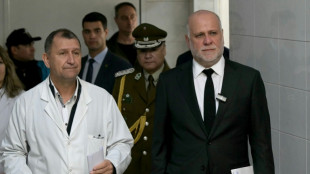
-
 Jefferson-Wooden scorches to Brussels Diamond League 100m win
Jefferson-Wooden scorches to Brussels Diamond League 100m win
-
Trump says 2026 World Cup draw set for December in Washington

-
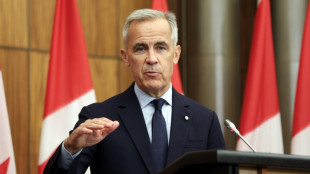 Canada removing tariffs on US goods compliant with free trade deal
Canada removing tariffs on US goods compliant with free trade deal
-
US Fed chair opens door to rate cut as Trump steps up pressure

-
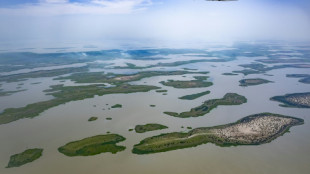 Boko Haram denies Nigerien army claim to have killed leader
Boko Haram denies Nigerien army claim to have killed leader
-
Ukrainian refuses German extradition in Nord Stream sabotage case
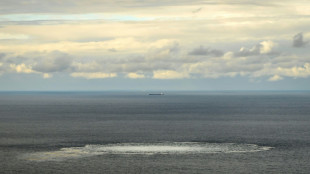
-
 Wall Street rallies, dollar drops as Fed chief fuels rate cut hopes
Wall Street rallies, dollar drops as Fed chief fuels rate cut hopes
-
Spurs boss Frank only wants committed signings after Eze snub

-
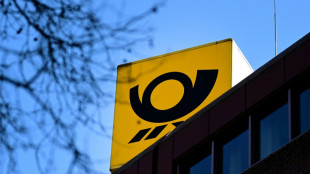 German, French post offices restrict packages to US over tariffs
German, French post offices restrict packages to US over tariffs
-
Australian sprinter Asfoora rebounds to land Nunthorpe Stakes

-
 Embattled Bordeaux winemakers see Trump's tariffs as latest blow
Embattled Bordeaux winemakers see Trump's tariffs as latest blow
-
Russia rejects Zelensky meeting as diplomatic tension simmers

-
 UN declares famine in Gaza, Israel rejects 'lie'
UN declares famine in Gaza, Israel rejects 'lie'
-
FBI raids home of outspoken Trump critic John Bolton

-
 Nuno 'worried' for job over relationship with Forest owner
Nuno 'worried' for job over relationship with Forest owner
-
Iran, Europeans to meet as snapback sanctions loom
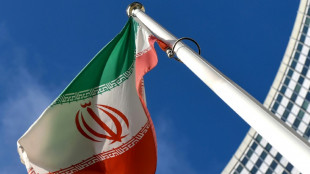
-
 Wall Street rallies as Fed chief fuels rate cut hopes
Wall Street rallies as Fed chief fuels rate cut hopes
-
Eze move a sign of Arsenal's 'ambition', says Arteta

-
 US Fed chair leaves door open to rate cut, facing down Trump pressure
US Fed chair leaves door open to rate cut, facing down Trump pressure
-
Spain's deadly wildfires ignite political blame game
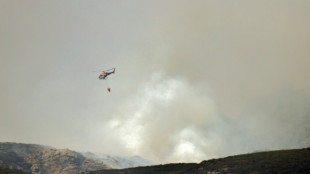
-
 Man Utd outcasts could return, says Amorim
Man Utd outcasts could return, says Amorim
-
Rabiot-Rowe altercation a 'bar fight', says De Zerbi

-
 Fit-again Rodri still 'best in the world' for Guardiola
Fit-again Rodri still 'best in the world' for Guardiola
-
TikTok's UK content moderation jobs at risk in AI shift

-
 NATO chief calls for 'robust security guarantees' on Ukraine visit
NATO chief calls for 'robust security guarantees' on Ukraine visit
-
Bayeux Tapestry not too fragile to move to UK, French official says

-
 UN declares famine in Gaza
UN declares famine in Gaza
-
Newcastle can't win in Isak stand-off, says Howe

-
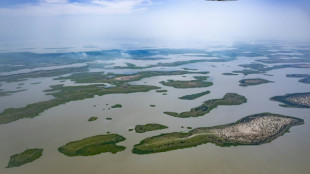 Doubts over Niger claim that a Boko Haram leader killed
Doubts over Niger claim that a Boko Haram leader killed
-
Teenager Wanner signs with Eindhoven from Bayern


TEPCO takes on challenge of making space for Fukushima nuclear debris
Workers at Japan's crippled Fukushima nuclear plant have started dismantling water storage tanks to free up space for tonnes of nuclear debris, 14 years after the facility was hit by a devastating tsunami.
Operator Tokyo Electric Power Company (TEPCO) has been charged with finding a suitable place to store around 880 tonnes of radioactive material that remains inside the Fukushima Daiichi plant's damaged reactors.
"Currently, there is no more land available in Fukushima Daiichi", Naoki Maeshiro, project manager for TEPCO, who is overseeing the operation which began on Friday, told AFP.
Three of plant's six reactors were operating when a tsunami caused by a massive earthquake hit on March 11, 2011, disabling their cooling systems and sending them into meltdown.
Ever since, TEPCO has been holding 1.3 million tonnes of water -- a combination of groundwater, seawater and rainwater -- at the site, along with water used for cooling the reactors.
The water, which is treated to remove various radioactive materials, has been held inside more than 1,000 tanks that occupy much of the plant.
In one of the zones called "J9", the giant steel tanks tower over employees at work, obstructing the view of the rest of the plant.
"To proceed with the next steps, such as retrieving the fuel debris, a certain amount of land is necessary," added Maeshiro.
Scrapping the water tanks became possible after TEPCO began discharging treated water from the plant into the Pacific Ocean in August 2023.
Japan and the International Atomic Energy Agency (IAEA) have assured that the operation does not harm the environment.
Getting rid of the welded containers is considered a crucial step in the decades-long decommissioning process.
Once removed, the utility company plans to build facilities to store highly dangerous molten fuel debris after extracting it from inside the reactors.
"As long as the fuel debris remains in its current state, the risks remain very high," Nobuhide Sato, a risk specialist at TEPCO, told AFP.
- Arcade-style claw machine -
The company has developed a telescopic device that can collect debris remotely for safety reasons and to avoid radioactive material leaks.
A demonstration attended by AFP was carried out in reactor number five, which was not in operation when the tsunami hit.
Before entering the zone, which is under high surveillance, employees put on masks, safety helmets, a full body protective white suit, and three pairs of socks and gloves as a precaution against radiation.
Armed with a flashlight, Sato stopped in front of a hole, around 60 centimetres (two feet) in diameter, that has been drilled into the structure protecting the reactor's core.
The plan is to extend the specially developed telescopic device several metres through the hole to reach the radioactive debris in the reactor.
The device resembles an arcade claw machine, so the "arm grabs the debris, lifts it, and retrieves it," said Sato.
In early November, TEPCO announced a debris sample weighing 0.7 grams (0.025 ounces) had been successfully extracted and sent to a laboratory near Tokyo.
The analysis will help determine radioactivity levels and the chemical composition of the molten fuel debris, a key step in the colossal dismantling project.
"Depending on the results, we will see whether it is better to use water to collect (the fuel debris) in the reactor or to do it in a dry environment," Sato said.
The TEPCO employee then enters the base of the reactor, where workers can only spend a maximum of two hours a day due to radiation levels.
"If we can properly recover the fuel debris and store it safely, it be a great help in reassuring nearby residents," Sato added.
A second sampling of nuclear material is scheduled between "March and April," according to TEPCO, which should provide enough information about its composition to move to the next stage -- a larger-scale extraction of radioactive debris by 2030.
The overall project is expected to take between 30 and 40 years, the company said.
M.Vogt--VB

